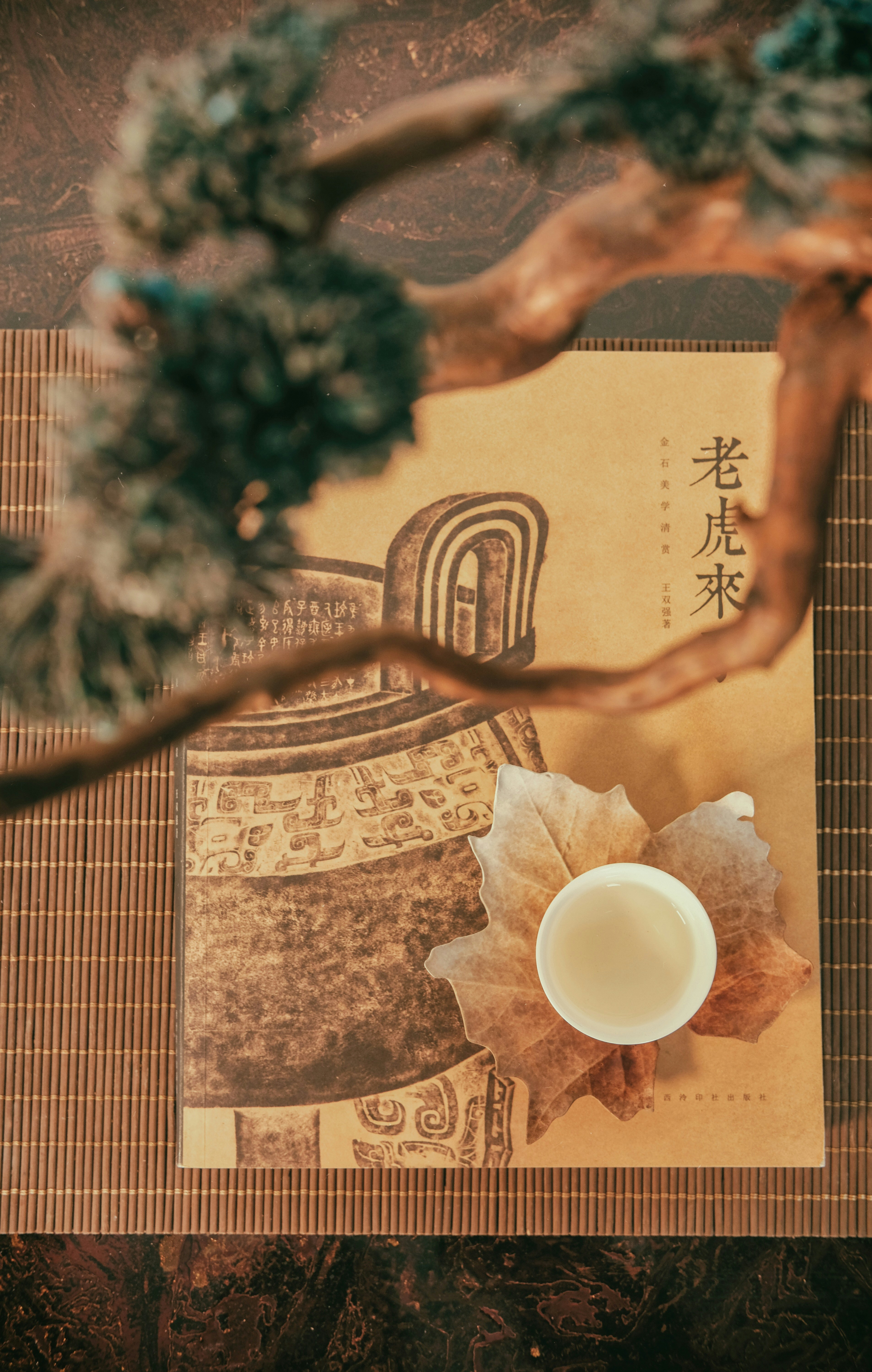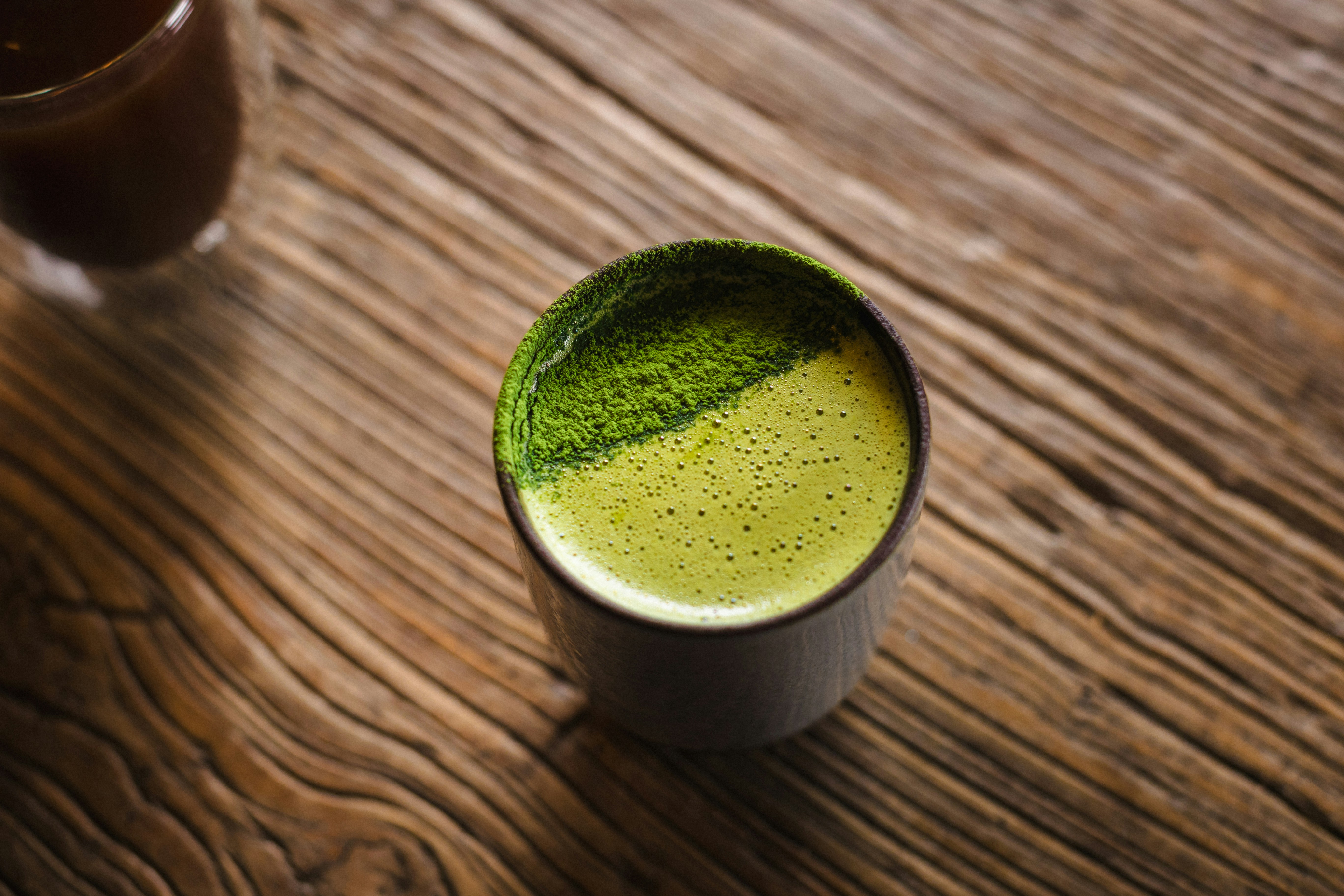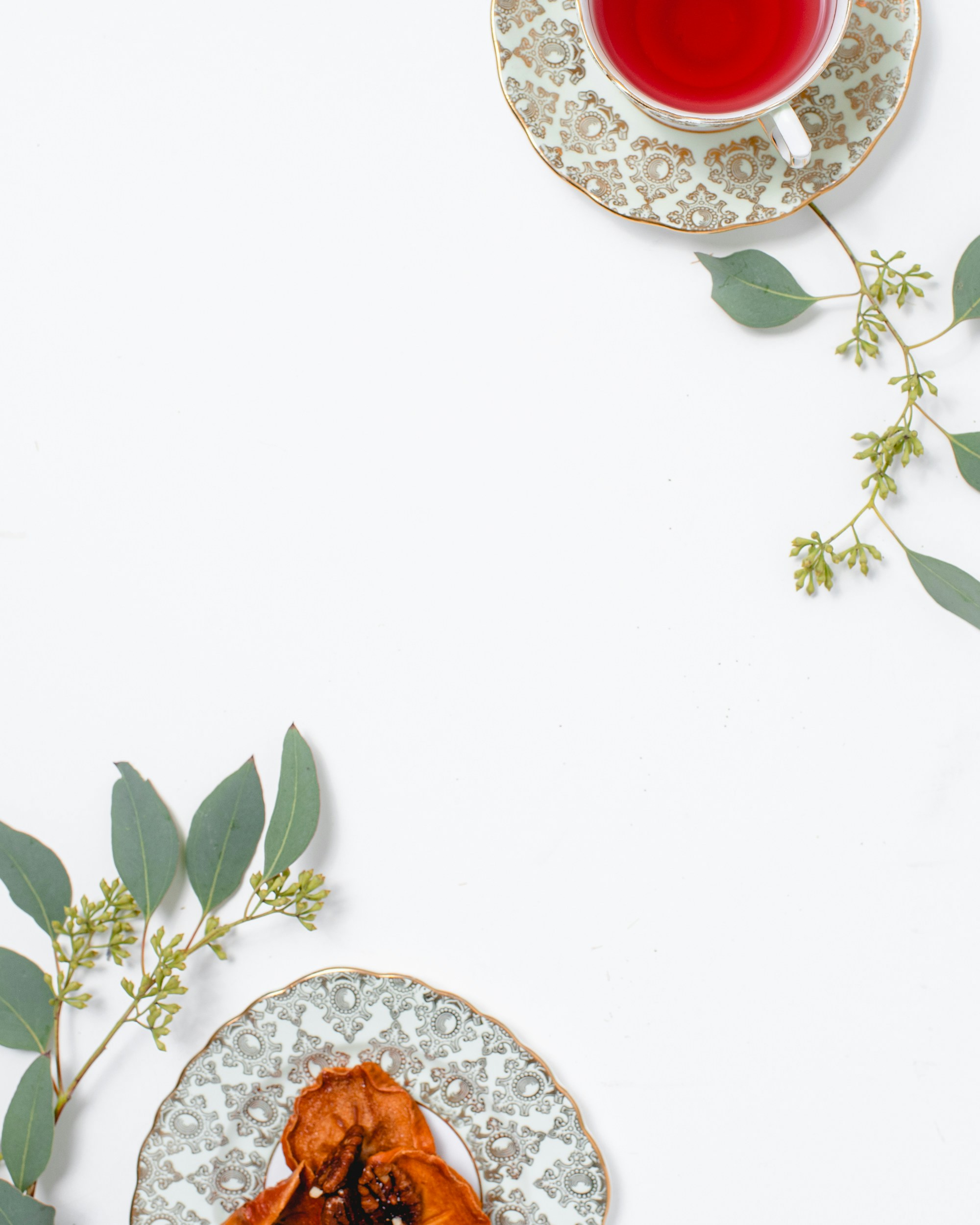Introduction: The Interconnection of Tea and Spiritual Wellbeing
In today’s fast-paced world, many individuals find themselves overwhelmed by the pressures of daily life. Consequently, the concept of spiritual wellbeing has gained significant traction, as people increasingly seek ways to reconnect with themselves and find inner peace. Spiritual wellbeing encompasses not just religious beliefs, but also a sense of purpose, belonging, and connection with one’s inner self, the environment, and others. One often overlooked yet powerful method of enhancing spiritual wellbeing is through the simple act of drinking tea.
Tea, revered for centuries in various cultures, serves as more than just a beverage; it embodies a ritual that fosters mindfulness and reflection. Engaging in the act of brewing and sipping tea can create a serene space in one’s daily routine, allowing for moments of introspection and clarity. The process of preparing tea can itself become a meditation, transforming ordinary moments into opportunities for spiritual nourishment. With each steeping, the fragrant leaves release their essence, inviting individuals to pause and appreciate the present moment.
Anecdotal evidence suggests that integrating tea rituals into daily life can significantly enhance ones’ emotional and spiritual health. For instance, many find solace in taking time each morning to prepare their tea, allowing the warm aroma to awaken their senses and prepare their minds for the day’s challenges. Others may have cherished memories associated with sharing tea with loved ones, cultivating a sense of connection and community. Such personal stories highlight the profound impact that a simple cup of tea can have on enhancing spiritual wellbeing.
As we delve deeper into the intersection of tea and spiritual wellbeing, we invite you to explore how this age-old practice can nurture your connection to self, others, and the world around you. The journey of discovering tea’s spiritual potential may lead you to valuable insights and profound moments of peace.
The Historical and Cultural Significance of Tea
Tea is not merely a beverage; it embodies a significant element of cultural identity and tradition across various societies. With origins tracing back to ancient China, tea has evolved into an integral part of daily life and spiritual practices. Initially used for medicinal purposes, its consumption expanded into social ceremonies and rituals that promote harmony and mindfulness.
In many cultures, tea is deeply intertwined with spirituality and mental clarity. For example, the Japanese tea ceremony, or “Chanoyu,” is a meditative practice that emphasizes simplicity, respect, and tranquility. This ritualistic approach to tea drinking encourages participants to focus on the present moment, thus fostering a state of mindfulness. Green tea, often utilized in this context, is renowned for its calming properties, further enhancing its role in spiritual well-being.
Similarly, in Buddhist traditions, tea is often seen as an aid to meditation. Monks have consumed tea to maintain alertness during long hours of contemplation. The variety of tea consumed can play a significant role in this setting; for instance, Matcha is prized for its ability to elevate mental clarity while promoting deep relaxation. This duality underscores tea’s unique status as both a stimulant and a calming agent.
Different types of tea hold symbolic meanings as well. In Chinese culture, Pu-erh tea is associated with health and longevity, while Oolong is often considered a bridge between green and black tea in terms of flavor and complexity, representing balance. Culturally, sharing tea can signify friendship and hospitality, revealing its role in building social connections and nurturing relationships.
Understanding the historical and cultural significance of tea enriches our appreciation for it as more than just a beverage. It serves as a bridge connecting us to our ancestors, to traditions, and to one another, ultimately nurturing our spiritual well-being.
Tea as a Tool for Mindfulness and Meditation
Tea has long been revered not only for its flavors but also for its utility in fostering mindfulness and enhancing meditation practices. The seemingly simple act of preparing and consuming tea can be transformed into a profound ritual, encouraging individuals to immerse themselves in the present moment. This shift from a hurried routine to a more deliberate process sets the stage for greater mental clarity and inner peace.
Mindfulness, at its core, involves being fully aware and engaged in the moment, and the ritual surrounding tea serves as an excellent gateway to achieving this state. When one focuses on the various elements of tea preparation—such as measuring the leaves, heating the water, and observing the infusion process—the mind is naturally drawn away from distractions. Each step can evoke a sense of calm and intentionality, which enhances overall well-being.
Many practitioners of mindfulness have documented the profound impact that tea rituals have had on their lives. For example, a yoga instructor might incorporate tea into her after-class sessions, emphasizing breathing techniques while savoring each sip. Participants often report feeling more centered and connected, as if the tea meditation deepened their awareness of both the ritual and themselves. Similarly, an individual recovering from stress may find solace in the quiet moments afforded by brewing tea, recognizing it as a personal sanctuary for reflection.
Moreover, the sensory experience involved in tea drinking—its aroma, taste, and warmth—can anchor one firmly in the present. This sensory engagement not only complements meditation sessions but also fosters emotional resilience. As the ritual becomes part of one’s daily routine, the benefits of calmness and mindfulness extend beyond the teapot, influencing other areas of life. Thus, tea serves as a meaningful conduit for cultivating a state of mindfulness, making it an invaluable tool in the journey toward spiritual well-being.
The Health Benefits of Tea and Their Impact on Spiritual Wellbeing
Tea is not only a widely enjoyed beverage but also a source of numerous health benefits that can significantly contribute to one’s spiritual wellbeing. Various types of tea each offer unique properties that promote physical health, which can, in turn, enhance one’s spiritual journey. For instance, green tea is well known for its high levels of antioxidants, which support mental clarity and focus. This can assist individuals in their efforts to cultivate mindfulness and inner peace, essential components of a spiritual lifestyle.
Furthermore, herbal teas, such as chamomile and peppermint, can be effective in relieving stress and promoting relaxation. By reducing anxiety and calming the mind, these teas help create a conducive environment for meditation and self-reflection, which are integral practices for nurturing spiritual wellbeing. The act of sipping these calming brews can also serve as a ritual, thus enhancing the overall experience and deepening one’s connection to their spiritual self.
Another important aspect of tea is its potential to balance emotions. Teas like rooibos and lemon balm are noted for their soothing properties, providing stability during turbulent emotional periods. When emotions are balanced, individuals may find it easier to connect with their inner selves and engage in spiritual practices that promote growth and enlightenment. Consuming teas rich in magnesium and calcium can further help maintain emotional equilibrium, leading to a more harmonious existence.
In summary, the health benefits associated with various types of tea extend beyond mere physical wellness. By understanding the relationship between the consumption of tea and its positive effects on mental and emotional health, individuals may discover new pathways to enhance their spiritual wellbeing. Incorporating tea into one’s daily routine can transform not only physical health but also foster a deeper connection with oneself, thereby nurturing the overall spiritual journey.
Tea Rituals: Creating Sacred Space
Creating a personal tea ritual is an enriching practice that can enhance spiritual wellbeing and mindfulness. By transforming the act of brewing and enjoying tea into a sacred experience, individuals can cultivate a deeper connection with themselves and their surroundings. The first step in establishing a tea ritual is to curate an environment that promotes tranquility and focus. Consider designating a specific area in your home as your tea space. This could be a cozy corner of your living room, a sunlit spot on your balcony, or even a peaceful nook in your garden. The key is to choose a location that feels safe and inviting.
Begin by decluttering the space, as a tidy environment can significantly impact your ability to relax. Introduce elements of nature, such as plants, flowers, or soft stones, which can serve as a grounding influence. Soft lighting, be it through candles or gentle lamps, can further enhance the calming ambiance. Additionally, consider playing soft, instrumental music or ambient sounds that resonate with you, as sound can heighten the sense of sacredness in your tea ritual.
When it comes to the tea itself, select varieties that you personally enjoy and that elevate your spirits. Think about exploring herbal teas, such as chamomile or lavender, which are known for their calming properties, or green teas that are associated with purity and tranquility. As you prepare your tea, be mindful of the process; take time to inhale the aromatic scents, appreciate the colors, and observe the steam rising from your cup. This mindfulness will help anchor you in the present moment.
Integrating your tea ritual into daily life doesn’t require a significant time commitment. Set aside just a few moments each day, whether in the morning or evening, to engage in this practice. By maintaining consistency, you build a habit that nurtures your spiritual wellbeing, providing a sanctuary amid the chaos of everyday life. Such rituals can not only soothe the mind but also create a profound sense of connection to oneself and the surrounding world.
Tea and Social Connections: Nurturing Relationships
Tea has long been celebrated for its ability to foster social interactions, serving as a bridge between individuals and a catalyst for community building. The act of sharing tea embodies hospitality and connection, transforming a simple beverage into a meaningful experience. When friends, family, or acquaintances gather over a cup of tea, the atmosphere shifts from ordinary to extraordinary, enhancing the potential for deepening relationships.
In various cultures around the world, tea-drinking rituals signify more than just the enjoyment of a beverage; they represent an opportunity for bonding and nurturing social ties. For instance, the Japanese tea ceremony emphasizes mindfulness and respect, allowing participants to engage in a shared moment of tranquility. This practice demonstrates that the communal aspect of tea can cultivate a supportive environment, fostering mutual respect and understanding.
Sharing a pot of tea often leads to open and heartfelt conversations, enabling individuals to connect on a deeper level. As stories and experiences are exchanged, relationships flourish. Such moments can reinforce feelings of belonging and acceptance, contributing to one’s overall spiritual wellbeing. The aromatic qualities of tea, combined with shared laughter or quiet contemplation, create a comforting atmosphere conducive to building connections that may last a lifetime.
Moreover, the communal aspect of tea extends to community gatherings and events, promoting inclusivity and collective engagement. By embracing these social practices, individuals can strengthen their networks and develop a robust support system, which is essential for mental and spiritual health. Overall, tea serves as a powerful tool for nurturing relationships, enabling individuals to create meaningful connections that enhance their spiritual wellbeing.
Addressing Concerns: Disclaimers on Tea and Spiritual Healing
While tea has long been cherished for its soothing properties and associated benefits for both physical and mental health, it is vital to approach the topic of spiritual healing with a balanced perspective. The consumption of tea may support relaxation and mindfulness practices, contributing indirectly to an individual’s well-being. However, it is important to clarify that tea alone cannot substitute for professional mental health care or be deemed a standalone solution for addressing serious psychological issues.
The intricate relationship between tea and spirituality should not be misconstrued as a cure-all. While herbal blends like chamomile or lavender may foster a sense of peace and tranquility, these effects are primarily complementary. They can enhance practices such as meditation and mindfulness, but they should not replace the need for therapy or medical intervention. Those experiencing significant emotional distress or mental health challenges should seek guidance from qualified professionals. In such cases, relying solely on tea for spiritual or emotional healing can lead to inadequate management of serious conditions.
Furthermore, the effects of tea on individuals can vary greatly depending on factors such as personal health conditions and sensitivities. Some individuals may experience adverse reactions or heightened anxiety from certain types of tea, particularly those containing caffeine. To ensure a holistic approach to spiritual well-being, it is essential to consider both the positive aspects of incorporating tea into one’s lifestyle while also acknowledging the limitations it presents.
Incorporating tea as part of a broader self-care routine can be beneficial; however, it must be done with caution and awareness. By understanding these disclaimers, individuals can engage with tea in a manner that uplifts their lifestyle and nurtures their spiritual growth while remaining grounded in the reality of mental health care needs.
My Journey with Tea and Spirituality
My journey with tea began in my formative years, a time when I sought solace from the chaos of daily life. Tea, for me, was not merely a beverage; it was a ritual that provided calm amidst the tumult. As I sipped my first cup, I noticed a gentle shift within myself, a subtle invitation to pause and reflect. This initial encounter marked the start of a transformative relationship between tea and my spiritual wellbeing.
In the subsequent years, I discovered that each type of tea carried its own distinct energy and resonance. For instance, green tea, with its fresh, invigorating qualities, became my go-to during moments of meditation. The preparation of the tea, along with its aroma and flavors, encouraged mindfulness, honing my focus and grounding my thoughts. The delicate act of brewing tea became a moment of connection, elevating my spiritual practice and creating a sacred space for introspection.
During various stages of my spiritual growth, I began to pair specific teas with intentions, using their properties to enhance my meditation and mindfulness exercises. Herbal blends such as chamomile were particularly powerful in promoting relaxation, while rooibos offered comfort during times of personal reflection. This intentional pairing fostered a deeper connection to both the tea and my spiritual journey. I found that as I tuned into the qualities of each tea, my understanding of myself deepened, promoting clarity in both thought and emotion.
Moreover, sharing tea with friends added another layer to my spiritual practice. Gathering with loved ones over a pot of tea created an environment of warmth and connection, allowing us to exchange thoughts and experiences. This communal aspect helped reinforce that tea is not just a solitary practice but a bridge to deeper relationships, fostering a sense of community on my spiritual journey.
Conclusion: Embracing Tea for a Holistic Spiritual Journey
As we explore the multifaceted benefits of tea, it becomes clear that this ancient beverage offers more than mere refreshment; it serves as a catalyst for enhancing our spiritual wellbeing. The practice of incorporating tea into daily routines cultivates mindfulness and presence, qualities essential for spiritual growth. Each sip can become a deliberate act, allowing individuals to reflect and connect with themselves on a deeper level.
Throughout this discourse, we have examined various aspects of how tea can significantly contribute to nurturing one’s spiritual lifestyle. From the calming properties of herbal infusions to the rich cultural traditions surrounding tea ceremonies, these elements collectively underscore the importance of approaching tea not just as a drink but as a holistic experience. This aligns with the understanding that our spiritual wellbeing is intertwined with our physical and emotional states, ultimately leading to a balanced lifestyle.
Moreover, the act of preparing and serving tea can be transformed into a meditative practice, further enabling one’s journey toward spiritual enrichment. The aroma, taste, and texture of different teas offer unique opportunities to engage the senses and ground oneself in the present moment. By actively participating in these rituals, we invite tranquility and reflection into our lives, fostering a deeper connection to our inner selves.
To conclude, embracing tea as part of a holistic spiritual journey can provide a profound sense of peace and clarity. It encourages individuals to evaluate their relationship with this time-honored beverage, inviting them to foster practices that enhance their spirituality. As you consider integrating tea into your daily mindfulness practices, take the time to appreciate the significance it may hold in your quest for spiritual wellbeing.








Leave a Reply